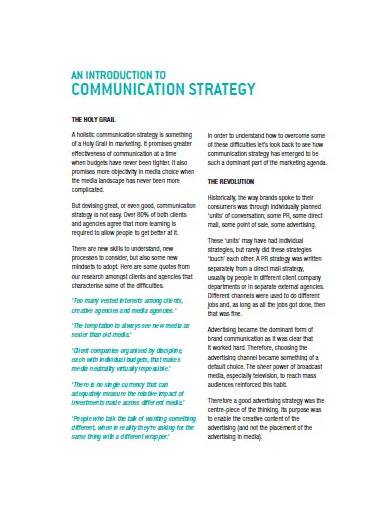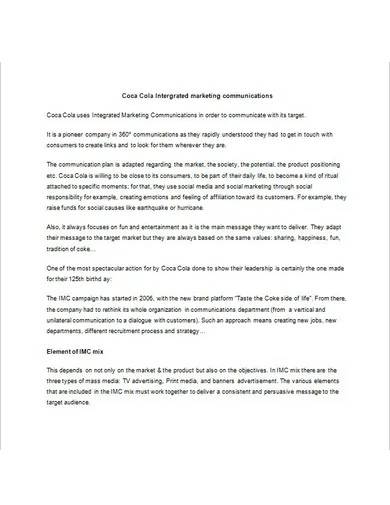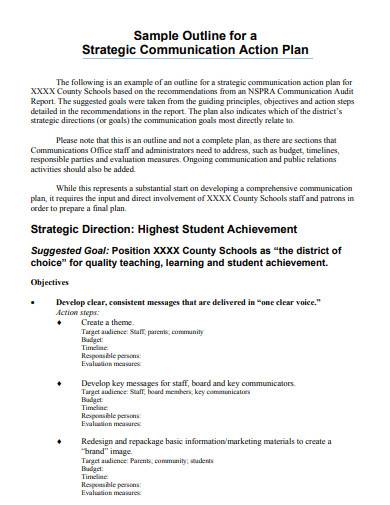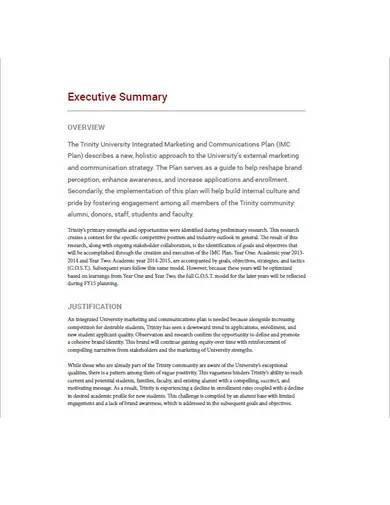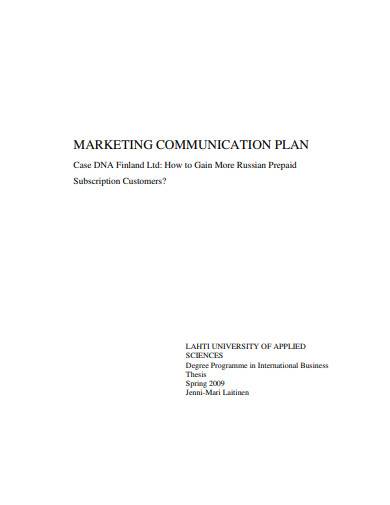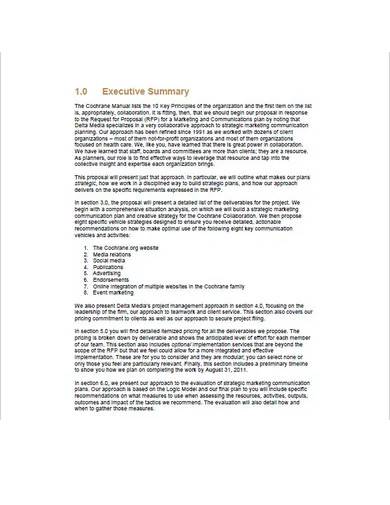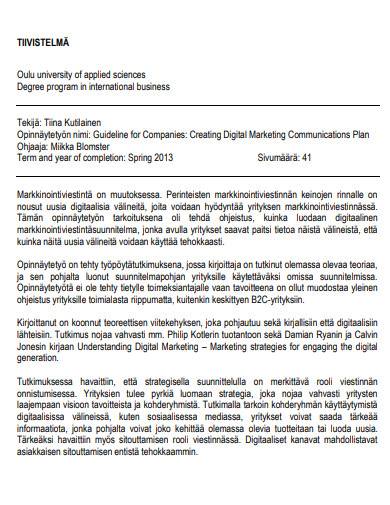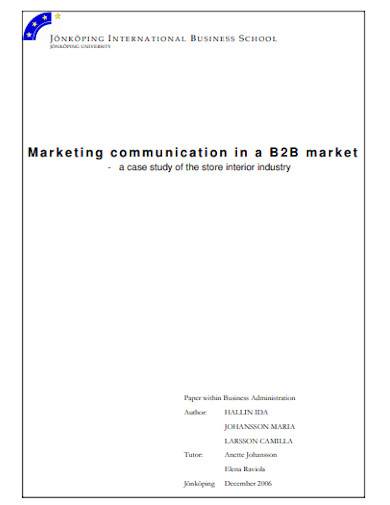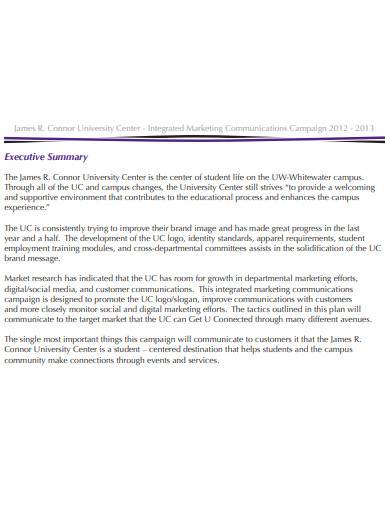Coca-cola’s “Open Happiness” global campaign became a worldwide sensation. The company didn’t need fancy taglines and persuasive product descriptions. Instead, it channeled its energy on a single potent element: powerful brand messaging. This is what a marketing communication plan caters to. It helps a brand create ties with its audience by sending a compelling message that will draw them in.
FREE 10+ Marketing Communication Plan Samples
1. Marketing Communication Plan Template
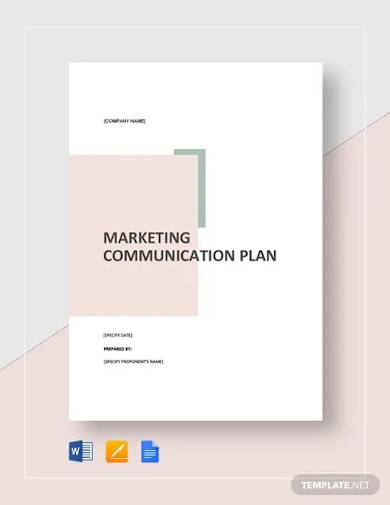
2. Integrated Marketing Communications Plan Template
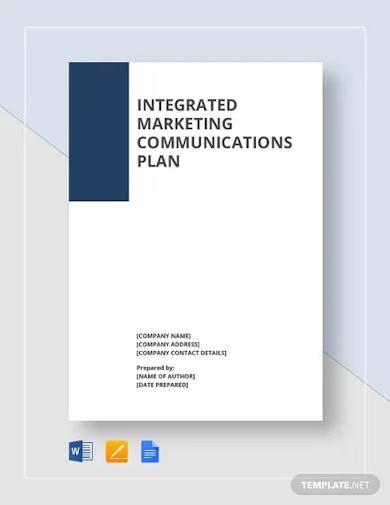
3. Sample Marketing Communication Plan
4. Integrated Marketing Communication Plan Template
5. Strategic Communication Action Plan
6. Integrated Marketing Communication Plan
7. Basic Marketing Communication Plan Template
8. Client Integrated Marketing Communication Plan
9. Digital Marketing Communication Plan Template
10. B2B Marketing Communication Plan
11. Formal Integrated Marketing Communication Plan
What Is a Marketing Communication Plan?
A marketing communication plan is an essential element of the entire marketing plan. It’s a strategy on how you’ll communicate your business’s products, services, and other promotions to the mass. While this is a topic that a marketing plan can address, a focused marketing communication plan can help you determine what to say, how to say it, and what right channels to choose when doing so.
Different Modes of Marketing Communication
According to Medium, marketing communication or marcom is an essential part of marketing because it’s the element that enables a brand to send a message and form consumer relationships. While marketing involves all factors of getting business products and services into the market, marcom becomes its voice. It contains the marketing plan’s compelling power to catch attention and form a connection.
Here are the six modes of marketing communication:
1. Advertising. This involves different strategies that aim to promote a brand and increase its sales report figures. Advertising taps into traditional media (e.g., posters, TV ads, flyers, etc.) and modern channels when relaying its message and presenting its content.
2. Direct Marketing. This involves being in direct contact with a client or customer through phone calls, emails, chats, and texts. It’s a marketing mode that has been used for a long, long time and has been modified to fit the demands of the modern world.
3. Personal Selling. This involves being in a face-to-face setting with a client or an audience, such as presentations, product inquiries, and the usual rapport between a customer and a salesperson in department stores.
4. Public Relations (PR). Public relations is a strategy that manages a brand’s reputation to the public. Because the audience’s impression of a business needs to be trustworthy and reputable, they produce press releases, giving light to controversies, and other related efforts.
5. Event Marketing. This is integrating brand promotions into exciting events and occasions that the crowd loves to flock to help generate leads and potential customers. Brand promotion using event planning helps businesses gather their target audience in one place where they can have the opportunity to introduce their products and services.
6. Sales Promotions. Utilizing discounts, freebies, and coupons have never failed to influence a consumer’s purchase decisions.
How to Make a Marketing Communication Plan
If you want to create a marketing communication plan, here are some steps that you can follow:
1. Assess Your Current Needs and Circumstances
If you want to ensure that your communication plan will yield benefits for your business, start by assessing your present state. Identify areas where you can utilize your communication plan as a tool for development. Are you launching a new product? Are you introducing a marketing campaign for the holidays? Do you need to raise your social media presence? These are some of the things that you point out before drafting your plan. This gives you a better perspective of what to do.
2. Analyze Your Audience
Because this process largely involves market messaging, it’s apparent that your major concern should be on how to appeal to your target audience. If you want to communicate with them, it’s only right that you first understand their needs and preferences. This helps you develop a message that’s perfect in capturing their attention and interest. Accomplish this by doing an audience analysis. This helps you go beyond their demographics and delve into their purchase motivators, influences, trends, and other useful information. In carrying out your market research, you can hand out questionnaires, online surveys, observations, and other means.
3. Develop Objectives
The information you’ve gathered when you assess your business’s status and your audience’s personas establishes your plan’s objectives. Having goals helps you know what you will execute and how you will carry them out because you already know what outcomes you want. This helps you formulate the details of your plan. Remember, when you set up your goal plan, your objectives should abide by the SMART criteria: specific, measurable, achievable, relevant, and timebound. This helps you avoid generic and unquantifiable goals. For example, instead of merely saying, “Boost marketing reach,” you’ll pursue “Increase the company’s marketing reach by 25% in three months.”
4. Create a Plan Outline
Now that you already have all the details you need, you can create an outline of your marketing communication plan strategy. Based on your finding, develop the best messaging that you want to implement. Provide its purpose and have an action plan on how you’ll promote it. You should also include everyone who’s involved in the plan and what roles they will play. The outline will help you put the entire document together once it’s done to aid in presentations and discussions.
FAQs
What are the three objectives of marketing communication?
The three main objectives of marketing communication are to communicate, to compete, and to persuade.
What is the marketing communication mix?
A marketing communication mix or marcom mix refers to the use of different modes to promote a brand’s products or services.
What are the factors to consider when choosing a marcom mix?
According to Medium, the factors to consider when choosing a marcom mix are:
- The kind of product market
- The product’s development cycle
- The customer’s eagerness
More than having the best marketing gimmicks to turn prospective clients into loyal customers rely on having a strong brand messaging to lure them in. People are more drawn to your product’s story and how it relates to them more than the glam and glitter of your presentation. Accomplish that with ease through the use of our marketing communication plan templates. Download now!
Related Posts
FREE 9+ 30-Day Marketing Plan Samples in PDF | MS Word | Apple Pages | Google Docs
FREE 3+ Sales Team Action Plan Samples in PDF | MS Word | Apple Pages | Google Docs
Marketing Plan For Small Business Samples
FREE 7+ Fashion Business Plan Samples in PDF
FREE 10+ Sprint Planning Samples In MS Word | Google Docs | PDF
FREE 10+ Wedding Planning Samples in MS Word | Apple Pages | Powerpoint | PDF
FREE 9+ Monthly Study Planner Samples in PSD | Illustrator | InDesign | PDF
FREE 9+ Sample Curriculum Planning Templates in PDF | MS Word
FREE 10+ Teacher Development Plan Samples in MS Word | Google Docs | Apple Pages | PDF
FREE 10+ Basketball Practice Plan Samples in PDF
FREE 12+ School Business Plan Samples in PDF | MS Word | Apple Pages | Google Docs
FREE 7+ Client Strategic Plan Samples in PDF | MS Word
FREE 11+ Trucking Business Plan Templates in PDF | MS Word | Google Docs | Pages
FREE 7+ Small Hotel Business Plan Samples PDF | MS Word | Apple Pages | Google Docs
FREE 14+ Bakery Business Plans in MS Word | PDF | Google Docs | Pages

